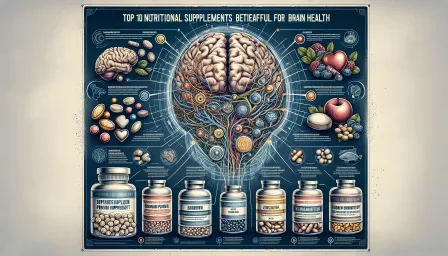Understanding Body Mass Index and Weight Loss: A Comprehensive Guide

Discover the in-depth guide on Body Mass Index (BMI) and Weight Loss. Learn about BMI calculations, its importance in weight management, and effective weight loss strategies.
Body Mass Index (BMI) is a widely used measurement that helps determine if an individual has a healthy body weight for a given height. Understanding BMI and its relationship with weight loss is crucial for effective weight management. This comprehensive guide will unravel the intricacies of BMI, its importance, and offer practical strategies for weight loss.
What is Body Mass Index (BMI)?
BMI is a numerical value derived from an individual's height and weight, serving as an indicator of body fatness. It is calculated by dividing a person's weight in kilograms by the square of their height in meters (kg/m²).
For example:
BMI = weight (kg) / height² (m²)
The resulting value helps categorize individuals into different weight statuses as defined by the World Health Organization (WHO):
- Underweight: BMI less than 18.5
- Normal weight: BMI 18.5 – 24.9
- Overweight: BMI 25 – 29.9
- Obesity: BMI 30 or greater
Importance of BMI in Health Management
BMI is a crucial tool in health management for several reasons:
Screening Tool
BMI serves as a preliminary screening tool to identify potential weight-related health issues. High BMI values are often linked to chronic conditions such as heart disease, diabetes, and hypertension.
Guidance for Weight Management
Understanding BMI can guide individuals and healthcare providers in creating tailored weight loss or weight management plans. It provides a benchmark to monitor progress and set realistic health goals.
Limitations of BMI
While BMI is a valuable tool, it's not without its limitations:
Does Not Measure Body Fat Directly
BMI does not distinguish between muscle and fat mass. This can lead to misclassification of muscular individuals as overweight or obese.
Variation Across Different Populations
BMI may not accurately reflect health status in all populations, particularly among different ethnic groups and older adults, due to variations in body composition.
Effective Weight Loss Strategies
Achieving and maintaining a healthy BMI involves a combination of lifestyle changes. Here are some evidence-based weight loss strategies:
1. Balanced Diet
Adopt a balanced diet rich in nutrients. Focus on whole foods like fruits, vegetables, lean proteins, and whole grains while limiting processed foods, sugary drinks, and excessive fats.
2. Regular Physical Activity
Incorporate regular physical activities such as walking, running, cycling, or strength training. Aim for at least 150 minutes of moderate aerobic activity or 75 minutes of vigorous activity weekly.
3. Behavioral Changes
Address behavioral factors influencing weight. Maintain a food diary, set realistic goals, and seek support from friends, family, or weight loss groups.
4. Professional Guidance
Consult health professionals such as dietitians, nutritionists, or doctors for personalized advice and monitoring throughout your weight loss journey.
Tracking Progress and Staying Motivated
Consistently tracking progress and staying motivated are key components of successful weight loss:
Utilize Technology
Use apps or online platforms to track calorie intake, physical activity, and weight changes. This can provide immediate feedback and help set achievable goals.
Celebrate Small Wins
Recognize and celebrate small milestones to stay motivated. Positive reinforcement can significantly impact long-term success.
Adjust Your Plan as Needed
Be flexible and willing to adjust your plan based on progress and changing circumstances. Weight loss is a dynamic process that requires ongoing evaluation.
Conclusion
Understanding body mass index and its role in weight loss is essential for achieving and maintaining a healthy weight. By recognizing its limitations and embracing effective weight loss strategies, you can take significant steps towards improving your overall health and well-being. Always consult with healthcare professionals to tailor an approach that best meets your individual needs.



























